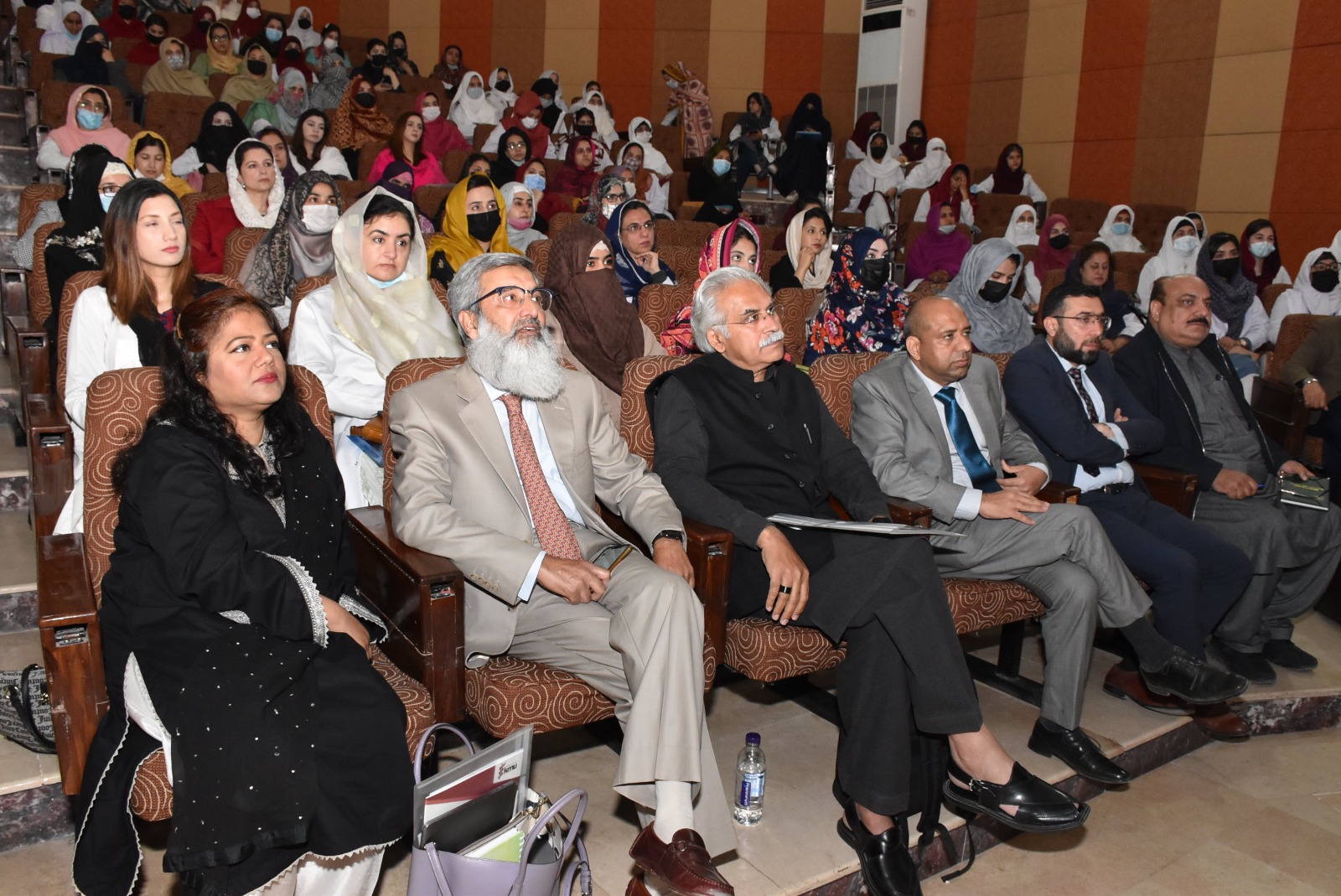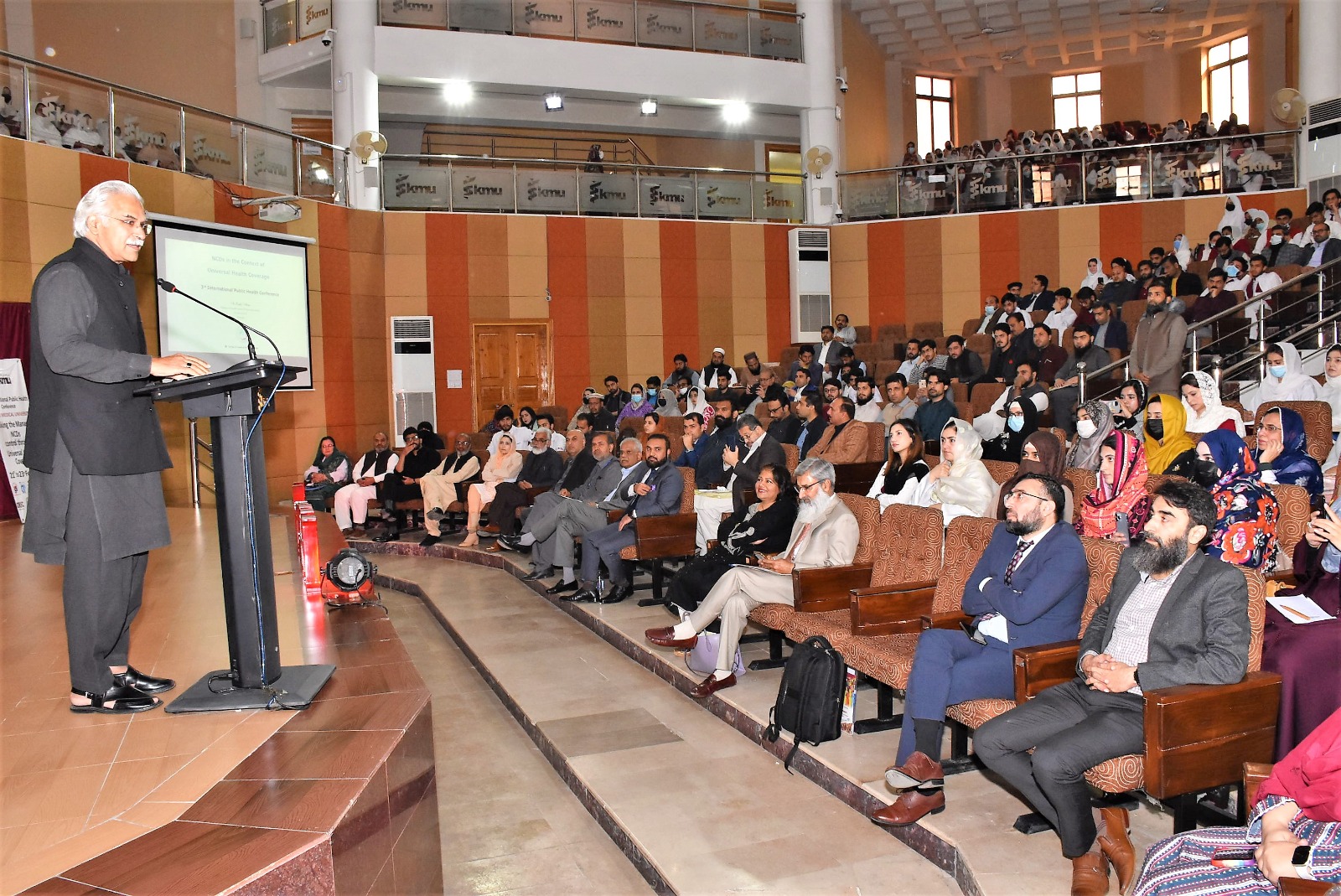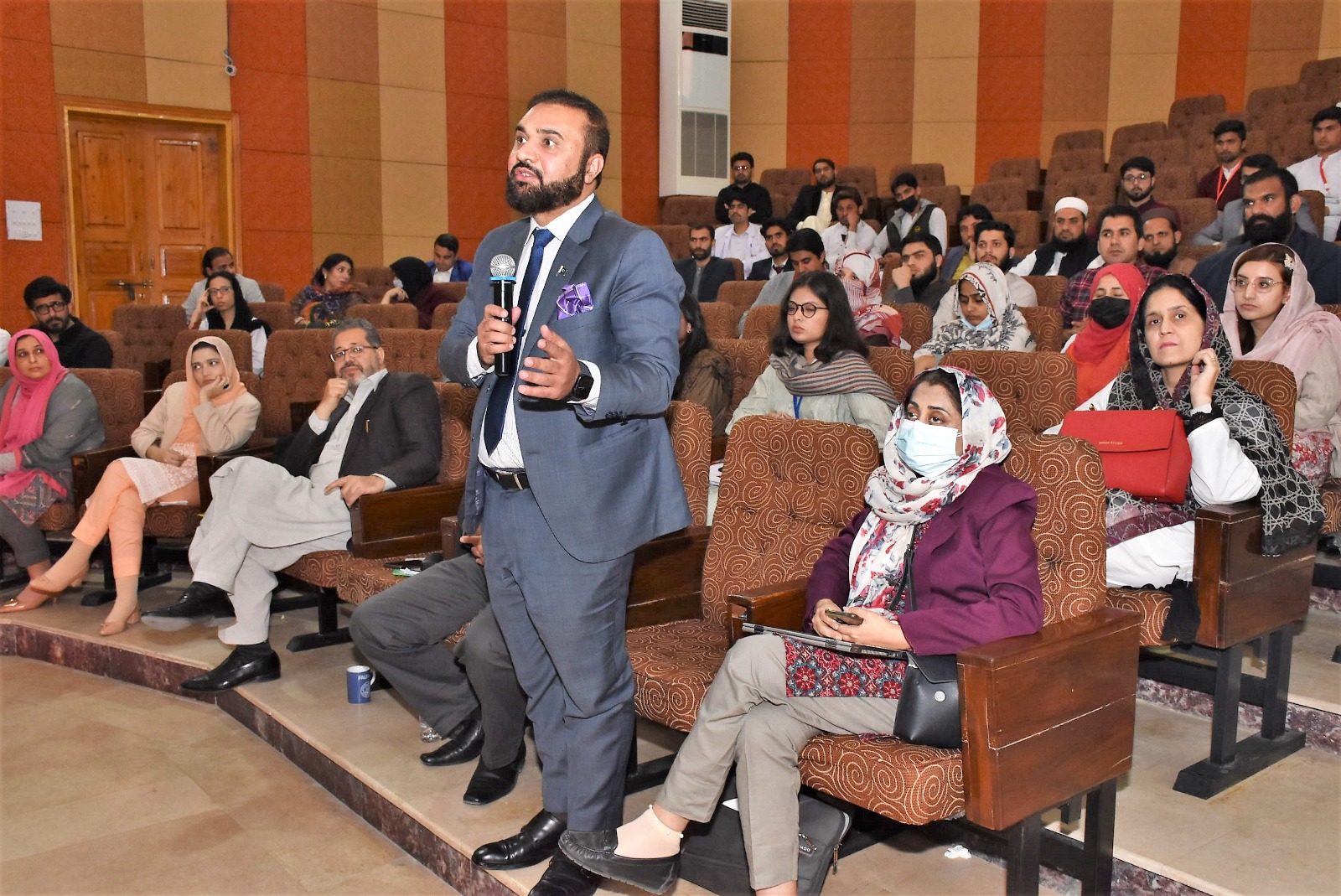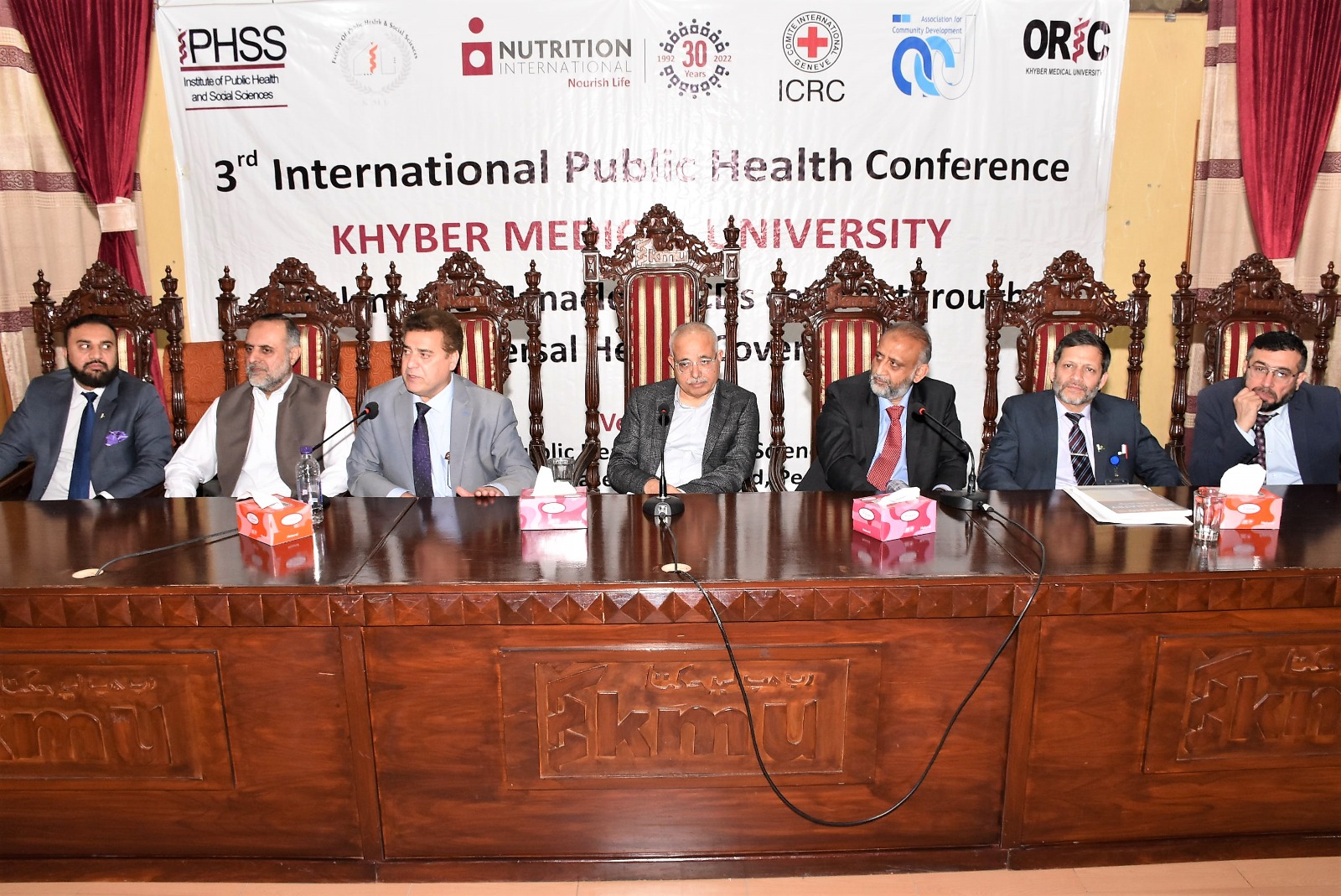Three day 3rd International Public Health Conference begins at KMU
-
-
Event Date:
Tuesday, 21 February 2023
-
Published on:
Thursday, 23 February 2023
Former Federal Minister of Health Dr. Zafar Mirza said that non-communicable diseases (NCDs) share in total deaths annually in Pakistan is 55.3%. NCDs mmetabolic/physiological risk factors refers to raised blood pressure, overweight/obesity, raised blood glucose and raised lipids as well as behavioural risk factors including tobacco use, unhealthy diet, physical inactivity and alcohol abuse.
He was talking to the third international Public Health Conference organized by Khyber Medical University (KMU) Institute of Public Health & Social Sciences. While explaining Universal Health Coverage (UHC) he said UHS means that all people and communities can use the promotive, preventive, curative, rehabilitative and palliative health services they need, of sufficient quality to be effective, while also ensuring that the use of these services does not expose the user to financial hardship.
He said that types of services are Preventive, Promotive, Curative, Rehabilitative and Palliative, whereas delivery Platforms are Community and Primary Health Centers (PHC), however 70% of essential health services can be delivered at PHC level. National NCDs & Mental Health Framework 2021 – 2030 aimed to reduce by one-third premature mortality from NCDs by 2030, through prevention and treatment, and promote mental health and well-being, he added.
The vice-chancellor KMU Prof. Dr. Zia ul Haq while talking to the conference said that Pakistan is facing a double burden of communicable diseases and NCDs. Adoption of a sedentary lifestyle and changes in diet have resulted in a surge in NCDs in Pakistan. He elaborated that NCDs include cardiovascular diseases, cancers, respiratory diseases, diabetes, and mental disorders, and injuries have become the major causes of morbidity and mortality in Pakistan.
He said that tobacco use and hypertension are the leading attributable risk factors for deaths due to cardiovascular diseases, cancers, and respiratory diseases. Pakistan has the sixth highest number of people in the world with diabetes; every fourth adult is overweight or obese; cigarettes are cheap; antismoking and road safety laws are poorly enforced; and a mixed public–private health-care system provides sub optimum care. Furthermore, almost three decades of exposure to sociopolitical instability, economic uncertainty, violence, regional conflict, and dislocation have contributed to a high prevalence of mental health disorders. Pakistan could achieve at least a 20% reduction in the number of deaths from NCDs by targeting the major risk factors, he added. Prof. Dr. Zulfiqar A. Bhutta, Dr. Bilal Ahmad and Dr. Zainab Raza also talked to the plenary session on various topics related to NCDs.
























